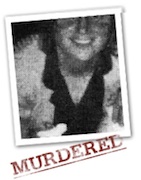
Perjury charges should have been brought against members of the RUC (now PSNI) police over the plastic bullet killing of an innocent mother of three, senior judges ruled in Belfast yesterday.
But they still dismissed a legal challenge brought by the husband of victim Nora McCabe.
The High Court panel refused to issue an order quashing the decision not to charge either the sergeant who fired the fatal round or his commanding chief superintendent with either murder or manslaughter. Both men have since died.
Mrs McCabe, 33, was killed in July 1981 during disturbances as she returned from the shops to her home in Linden Street, west Belfast. It fractured her skull and led to her death in hospital the following day.
After a bogus ‘investigation’, the Office of the Director of Public Prosecutions (DPP) claimed that the evidence was insufficient to warrant a prosecution against any of the RUC men involved.
At an inquest the next year, RUC witnesses claimed the road was strewn with beer barrels and concrete blocks and said they were coming under heavy attack with petrol bombs and stones.
But as part of judicial review proceedings brought by Mrs McCabe’s husband Jim, film footage taken by Canadian cameramen at the scene was produced which “demolished” the credibility of the police account.
Mr McCabe’s lawyers said the PSNI men had closed ranks and lied under oath to protect two colleagues from facing murder charges.
Ruling on the case, Justice Coghlin expressed sympathy for Mr McCabe’s “sense of powerlessness and frustration that no one has been made amenable for his wife’s death”.
But he said there was no explanation for the 25-year delay in taking the case to court. He said the court must be seen to act “fairly and impartially” and that any decision to prosecute any of those involved in Mrs McCabe’s death now “could only be regarded as wholly disproportionate”.
Dealing with the second part of the case, the judge said there was no evidence that consideration had been given to charging police officers with perjury or perverting the course of justice.
He said there was no doubt that prosecutors were aware of significant conflicts between the evidence of a number of RUC men and the events depicted on the video film, and that a perjury case should have been considered.
Speaking outside the court flanked by his three children expressed deep disappointment at the verdict but said he had been vindicated by the conclusion that prosecutors had been wrong not to consider a perjury charge.
“I believe this wes a classic case of justice delayed, justice denied,” he said.
“I’m disappointed that the judges felt that the time lapse in legal proceedings was too great. This was through no fault of my own.
“But I feel that I have been vindicated by the ruling that the PPS [Public Prosecution Service] was wrong not to consider charging the RUC with perjury.
“The manner in which Nora was shot - in the back of the head from a distance of less than 12ft - leads me to believe it was a premeditated action.”
Mr McCabe, who was forced to quit his job to bring up his three children, said he felt justified in bringing the case.
“Part of my reasons for taking the case was to prove that Nora, was an innocent victim,” he said.
“I spent 29 years fighting the case but finally they’ve admitted that officers should have been investigated for perjury.”
Revealing the personal trauma on his family. he said: “I was told hundreds of times to drop the case and to get on with my life. But my three children, who were six weeks, two and six years old at the time, were robbed of a mother.
“I didn’t start this case expecting to see people in the dock. I started it to find out the truth and after 29 years I feel we have achieved that.”
The Relatives for Justice victims group, which has supported the McCabes’ case, challenged the High Court’s criticism of the 25-year delay in bringing the case to court.
“No court would have allowed a judicial review against a DPP decision in the 1980s,” spokesman Mark Thompson said. “It just wouldn’t have been allowed to happen.”
![[Irish Republican News]](https://republican-news.org/graphics/title_gifs/rn.gif)
![[Irish Republican News]](https://republican-news.org/graphics/title_gifs/harp.gif)

